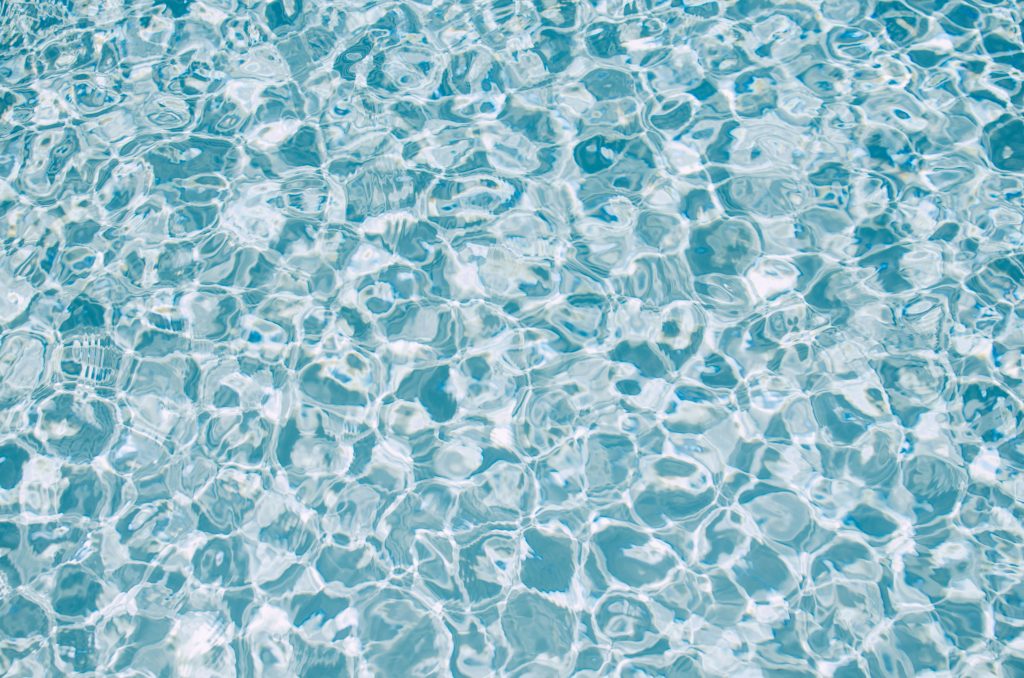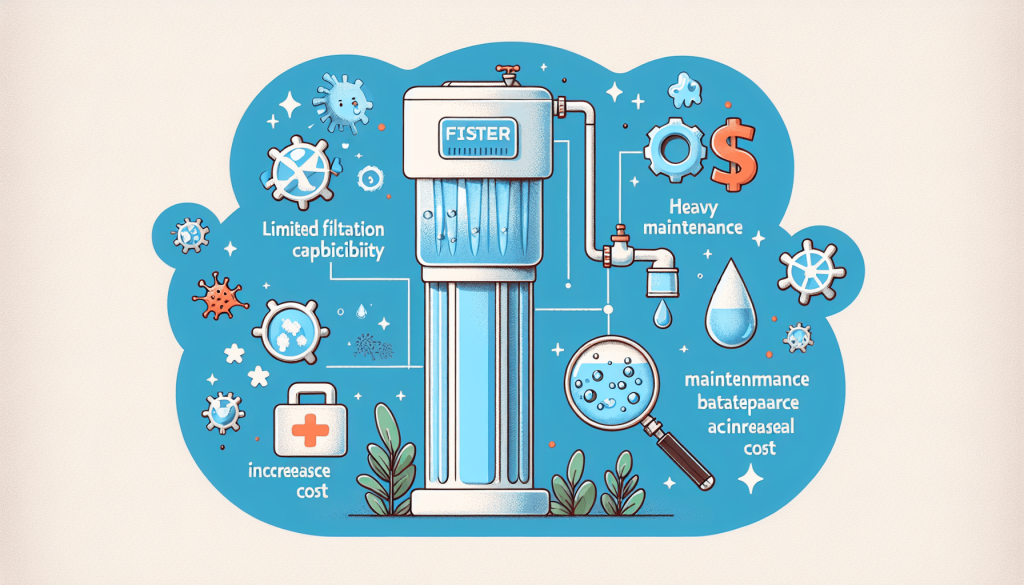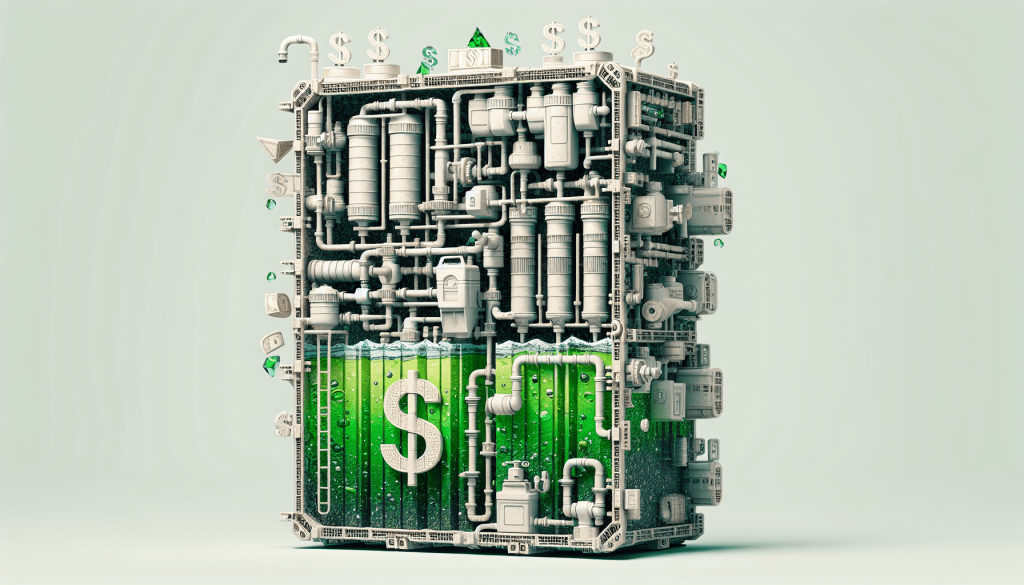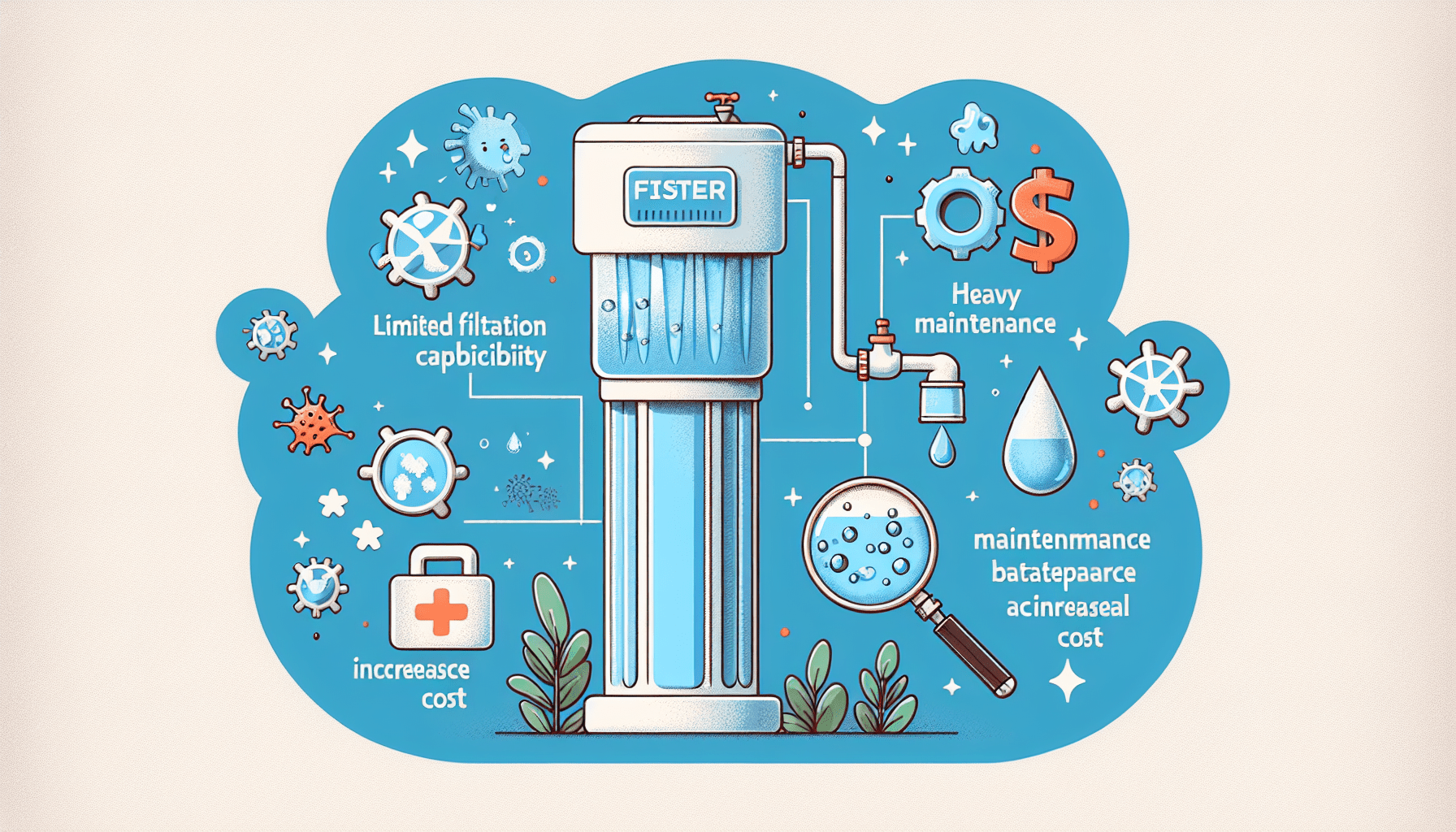So you’ve been considering investing in a water filter, but you want to make sure you have all the information before making a decision. Well, let’s take a moment to explore the potential downsides, or cons, of using a water filter. While a water filter can certainly provide many benefits, it’s important to be aware of any drawbacks as well. From initial costs and maintenance requirements to potential limitations on certain contaminants, this article will shed light on some of the cons you should consider when thinking about purchasing a water filter.

Initial cost
Expensive initial investment
When considering purchasing a water filter, it is important to take into account the initial cost. Water filters can be quite expensive, especially if you opt for a high-quality model. However, it is essential to keep in mind that this initial investment can pay off in the long run by providing clean and safe drinking water for you and your family.
Additional costs for installation and maintenance
In addition to the initial cost, there are other expenses associated with water filters. Installation may require professional assistance, which can add to the overall cost. Furthermore, regular maintenance is necessary to keep the filter functioning optimally, and this may involve purchasing replacement parts or hiring a professional for servicing. While these additional costs should be considered, they are ultimately outweighed by the benefits of having clean water.
Limited filtration capability
May not remove certain contaminants
One of the drawbacks of water filters is that they may not remove all types of contaminants from the water. While they are effective at eliminating common impurities such as sediment and chlorine, they may not be as effective at removing certain chemicals, heavy metals, or bacteria. It is crucial to understand the specific contaminants in your water and choose a filter accordingly.
Limited effectiveness against certain chemicals and heavy metals
Certain chemicals and heavy metals can pose a risk to human health when consumed through water. However, water filters may have limited effectiveness in removing these substances. Different filter types have different capabilities, so it is crucial to research and choose a filter that targets the specific contaminants you want to eliminate.
Replacement filters
Regular replacement necessary
To maintain the optimal functionality of a water filter, regular replacement of the filter cartridges is required. Over time, the filters can become clogged and less efficient, which can impact the quality of the filtered water. Typically, filters need to be replaced every few months, depending on usage and the specific filter model. Keep in mind that neglecting to replace filters as recommended can compromise the effectiveness of your filter.
Cost of replacement filters can add up
While regular replacement of filters is necessary, the cost of these replacement filters can add up over time. It is essential to factor in the ongoing expenses of filter replacements when considering the overall cost of a water filter system. However, the long-term health benefits and convenience of having clean water readily available usually outweigh the financial burden of replacement filters.
Reduced water flow
May decrease water pressure
Another potential downside of using a water filter is that it may decrease the water pressure in your home. As the water passes through the filter media, it undergoes a purification process that can slow down the flow. While this might not be noticeable for some individuals, those who place a high value on strong water pressure may find this to be a drawback.
Slower filtration process
In addition to potentially reducing water pressure, water filters can slow down the overall filtration process. This means that it may take longer for you to fill up a glass or pitcher with filtered water. However, the slight inconvenience of a slower filtration process is generally perceived as acceptable compared to the benefits of having purified water.

Energy consumption
Some filters require electricity to run
Certain types of water filters, particularly those with more advanced filtration systems, require electricity to operate. This can increase your energy usage and subsequently result in higher utility costs. If you are environmentally conscious or trying to reduce your energy consumption, it is important to consider the electrical requirements of the filter you choose.
Increases energy usage and utility costs
In addition to the initial cost of the filter itself, the increased energy usage can contribute to higher utility costs. It is important to factor in these ongoing expenses when considering the overall affordability of a water filter system. However, the energy consumption associated with water filters is generally minimal compared to other household appliances.
Space requirements
Large filters may take up considerable space
Some water filter systems, particularly those with larger capacities or multiple filtration stages, can take up a significant amount of space. This can be problematic, especially for individuals living in smaller homes or apartments with limited countertop or storage space. It is important to carefully consider the dimensions and space requirements of a water filter before making a purchase.
Can be challenging for smaller living spaces
In smaller living spaces, finding a suitable area for a water filter can be a challenge. It may require creative placement or even the sacrifice of valuable counter space. However, manufacturers are aware of this concern and offer a variety of compact and space-saving options that can be installed under sinks or on walls, making it easier to find a suitable spot for the filter.

Maintenance and cleaning
Regular cleaning required for optimal performance
To ensure that your water filter continues to function effectively, regular cleaning is required. This can involve removing and cleaning the filter cartridges, sanitizing the filter housing, or flushing out any accumulated sediment. While this maintenance is essential for optimal performance, it can be time-consuming and tedious for some individuals.
Can be time-consuming and tedious
Maintaining and cleaning a water filter can be an additional task on your to-do list. Some individuals may find this process time-consuming and tedious. However, regular cleaning and maintenance are necessary to prevent the buildup of contaminants and ensure that the filter continues to provide clean and safe drinking water.
Limited portability
Not easily portable for travel or moving
Water filters are not easily portable for travel or moving purposes. Once installed, they are typically designed to be a permanent fixture in your home. This lack of portability means that if you frequently travel or move, you may need to invest in additional water filtration options for those situations, such as portable water filter bottles or pitcher filters.
May require professional assistance for relocation
If you have a water filter that is permanently installed and you are moving to a new location, you may require professional assistance to relocate the filter. This can be an added cost and inconvenience, as it may involve hiring a plumber to disconnect and reinstall the filter in your new home. It is important to consider the potential challenges associated with relocating a water filter.

Possibility of bacterial growth
Improper maintenance can lead to bacterial growth
If a water filter is not properly maintained or if the filter cartridges are not replaced on schedule, there is a possibility of bacterial growth within the filter. This can occur when bacteria, present in the water supply, multiply and accumulate within the filter media. To prevent this, it is crucial to follow the manufacturer’s instructions for maintenance and replacement.
Filters can become breeding grounds for bacteria
Water filters provide a moist and favorable environment for bacterial growth if not properly maintained. The accumulation of bacteria within the filter can compromise the effectiveness of the filtration system and potentially introduce harmful bacteria into the filtered water. Regular cleaning and replacing filters as recommended are essential to minimize the risk of bacterial growth.
Environmental impact
Disposable filter cartridges contribute to waste
A significant concern with water filters is the environmental impact of disposable filter cartridges. These cartridges need to be replaced periodically, resulting in the generation of additional waste. While some manufacturers offer recycling programs for used cartridges, it is important to consider the overall environmental footprint of using disposable filters.
Manufacturing and disposal of filters have environmental consequences
Water filters, like any other manufactured product, have environmental consequences during the manufacturing process as well as in their eventual disposal. The resources required to produce filters, the energy used in manufacturing, and the disposal of filters at the end of their life cycle can all contribute to the overall environmental impact. When selecting a water filter, it is worth considering options that prioritize sustainable manufacturing and offer environmentally friendly disposal alternatives.
In conclusion, while water filters provide numerous benefits in terms of improving the quality of drinking water, there are some downsides to consider. The initial cost, additional expenses for installation and maintenance, limited filtration capability, regular replacement of filters, reduced water flow rate, increased energy consumption, space requirements, maintenance and cleaning demands, limited portability, possibility of bacterial growth, and environmental impact are all important factors to bear in mind when deciding whether or not to invest in a water filter. It is essential for individuals to weigh these cons against the benefits and determine the most suitable water filtration solution for their specific needs and circumstances.



